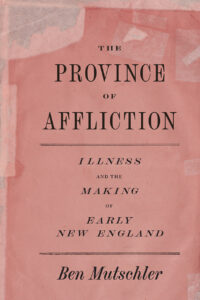 With a global pandemic uprooting most every basic element of modern social life that so many of us have taken for granted throughout our entire lives, it is not surprising that some are looking back into the past to learn what those who lived in L.P. Hartley’s metaphorical “foreign country” where they “do things differently” did when faced with such epidemiological challenges. Many doing so are naturally looking to the early twentieth century and its influenza pandemic; however travelling a bit farther back may be an even more enlightening journey.
With a global pandemic uprooting most every basic element of modern social life that so many of us have taken for granted throughout our entire lives, it is not surprising that some are looking back into the past to learn what those who lived in L.P. Hartley’s metaphorical “foreign country” where they “do things differently” did when faced with such epidemiological challenges. Many doing so are naturally looking to the early twentieth century and its influenza pandemic; however travelling a bit farther back may be an even more enlightening journey.
For example, in his new The Province of Afflication, Illness and the Making of Early New England from University of Chicago Press, Prof. Ben Mutschler guides his readers through the society of early New England, presenting detailed and lively portraits of the challenges the eighteenth century colonists (and later, Americans) faced from regular and often extended outbreaks of disease, as well as the longer-term infirmities left by both such outbreaks as well as other injurious phenomena such as warfare and accidental injuries. In doing so, he looks deeply into the social adaptations these many challenges caused to be enacted; adaptations involving community interaction, accommodation to those affected, and even questions of ongoing care and financial maintenance.
As one who often looks to the past in order to understand the present, I have been fascinated both by what Prof. Mutschler has presented in this new book, as well as how familiar some of the challenges seem to those we presently face, and even how some solutions that had once been found and proven effective have since been largely – and it may be argued, to our detriment – fogotten. Truly, this is a work filled with a wealth of not only information but, perhaps even more importantly, enhanced and enlarged perspective as well.
If you enjoyed reading this, please consider signing up for The Well-read Naturalist's newsletter. You'll receive a helpful list of recently published reviews, short essays, and notes about books in your e-mail inbox once each fortnight.
